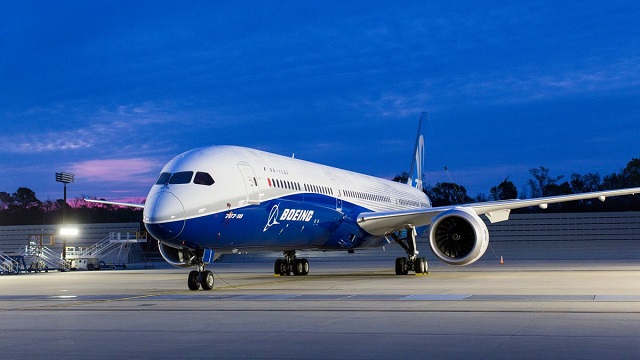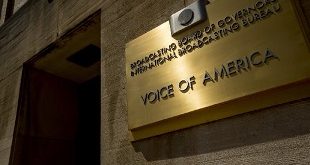
Washington, United States | AFP | US aviation regulators came in for heavy criticism on Friday over lapses in certifying the Boeing 737 MAX aircraft, which has been grounded following two crashes that killed 346 people.
The report, authored by a team of international aviation regulators, said the US Federal Aviation Administration lacked the necessary manpower and expertise to evaluate key flight-handling changes on the plane and also delegated too much to Boeing staff, hamstringing its ability to ensure the plane was safe.
The study focused in particular on the Maneuvering Characteristics Augmentation System, a flight-handling mechanism that is believed to be at the center of both crashes. It comes on the heels of reports last month by the National Transportation Safety Board and the US Office of Special Counsel that also criticized the FAA’s handling of MAX certification.
Certification documents submitted by Boeing were “fragmented” and failed to evaluate the system in “a complete and integrated” manner, said the report by the Joint Authorities Technical Review (JATR), which the FAA established in March after the second of the two deadly crashes.
“Aircraft functions should be assessed, not in an incremental and fragmented manner but holistically at the aircraft level,” the report said.
The study also painted a troublesome picture of the FAA’s “Organization Designation Authorization” program, or ODA, in which the agency delegated elements of the certification to Boeing. Critics have derided this process as “self-certification” and characterized it as reflective of a too-cozy relationship between Boeing and the FAA.
The report said the FAA’s ability to oversee the process was hindered by “resource shortfalls” and the “limited” experience and knowledge engineers had of technical aspects of the 737 MAX program.
“With adequate FAA engagement and oversight, the extent of the delegation does not in itself compromise safety,” the report said.
“However, in the 737 MAX program, the FAA had inadequate awareness of the MCAS function which, coupled with limited involvement, resulted in an inability of the FAA to provide an independent assessment of the adequacy of the Boeing proposed certification activities associated with MCAS.”
The report also urged the FAA to review the ODA work environment in Boeing projects to ensure engineers “are working without undue pressure” when they make decisions on behalf of the FAA.
-‘Unvarnished’ view –
FAA Administrator Steve Dickson thanked the JATR for the “unvarnished and independent review,” according to a statement.
“We welcome this scrutiny and are confident that our openness to these efforts will further bolster aviation safety worldwide,” Dickson said. “The accidents in Indonesia and Ethiopia are a somber reminder that the FAA and our international regulatory partners must strive to constantly strengthen aviation safety.”
A Boeing spokesman said the company “is committed to working with the FAA” to review the recommendations and improve the certification process.
And he repeated the company’s previous statement that safety is “a core value” for Boeing and is “always our top priority.”
Boeing is targeting regulatory approval for the planes’ return to service this year following upgrades, but the aerospace giant has noted government authorities will have the final say.
On Friday, United Airlines became the latest carrier to push back the target date for resuming flights until 2020, announcing it removed MAX flights through January 6.
“Moving forward, we’ll continue to monitor the regulatory process and nimbly make the necessary adjustments to our operation and our schedule to benefit our customers who are traveling with us,” the company said.
Aviation experts said the report shouldn’t significantly affect the timeframe for FAA approval since many of the issues with the FAA’s oversight of MAX certification have been previously aired in government and media reports.
“It largely reaffirms what is generally known about the MCAS development process and its flaws,” said Richard Aboulafia, a vice president at the Teal Group, a market analysis firm, adding that the plane could still be approved in late 2019.
Scott Hamilton of Leeham News, a publication specializing in aviation, said the report should not affect the timeframe for regulatory approval since the FAA participated in the JATR study and likely has already incorporated the recommendations.
“I am not aware of anything that would prevent the FAA from completing its recertification this year. But clearly Boeing’s hope of ‘early’ fourth quarter is done,” Hamilton said in an email.
Shares of Boeing rose 1.4 percent to $376.15 in late-afternoon trading.
 The Independent Uganda: You get the Truth we Pay the Price
The Independent Uganda: You get the Truth we Pay the Price


